Postpartum psychosis: causes, signs, risks and treatment
Postpartum psychosis can be a terrifying experience for a new mum. More extreme than postnatal depression, it needs urgent care but there is help available.
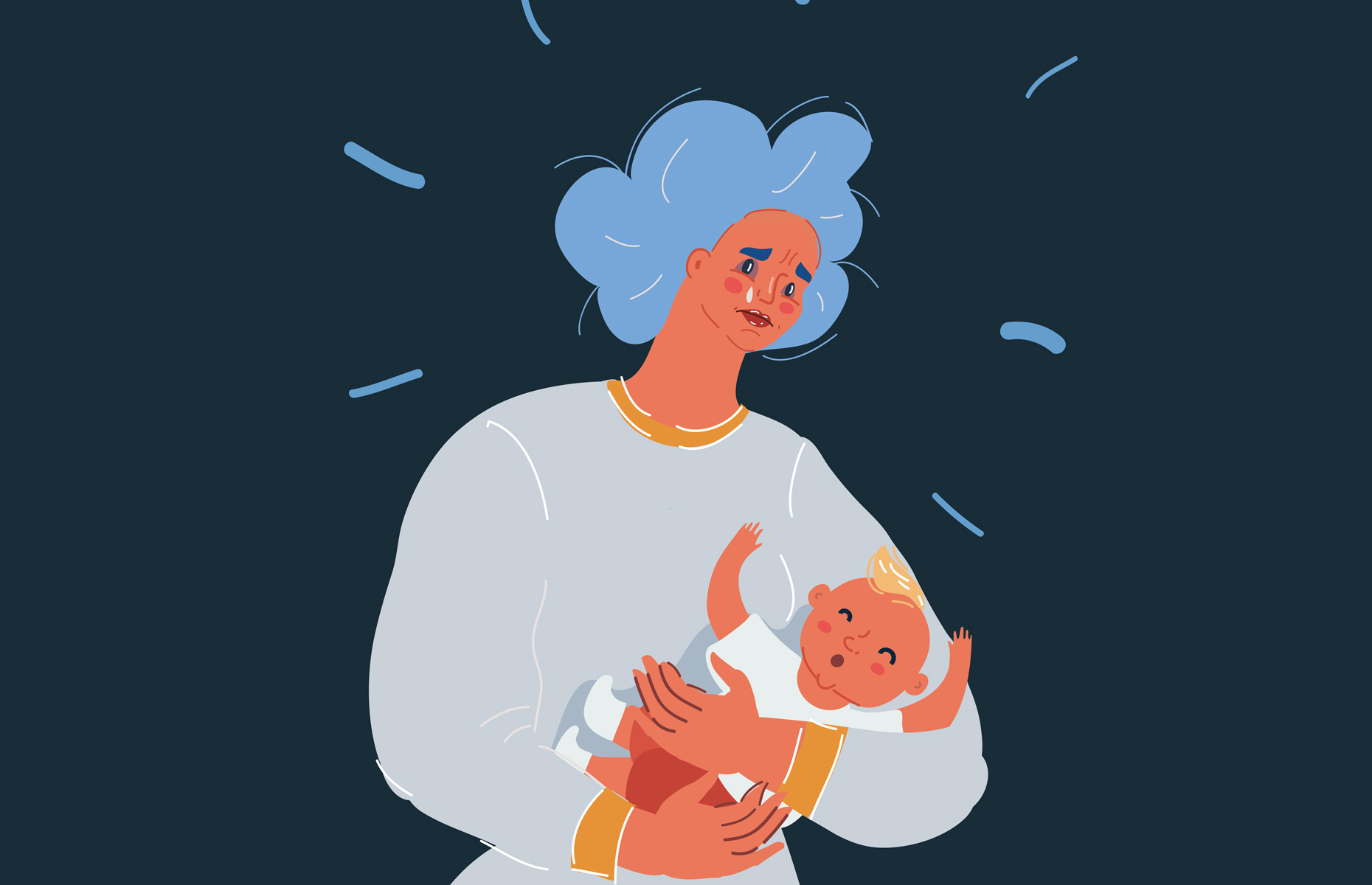

Once referred to as a ‘temporary madness’, postpartum psychosis can be a terrifying experience for a new mum, and very concerning for the people around her. While it’s often regarded as an aspect of postnatal depression, it’s more extreme and requires urgent care.
Yet many of us aren’t aware it exists. While you could argue that ignorance is bliss, not knowing the signs and the treatment available makes sufferers more vulnerable. These days, it’s not unusual to discuss having had postnatal depression (also called PND or postpartum depression). Many celebrities including Adele and Reese Witherspoon have talked about battling PND. Even prenatal depression (being depressed during pregnancy) doesn’t carry the same stigma it once did. Yet a Google search reveals that few people – especially those in the public eye – share their postpartum psychosis stories.
Dr Jess Heron, CEO of Action on Postpartum Psychosis, says that because this illness isn't well known or understood, it makes raising awareness even more important. “Postpartum psychosis is a serious postnatal mental illness that can come on suddenly in the hours, days, weeks or sometimes months after giving birth,” she explains. This is why recognising the signs and symptoms – in yourself, a friend, or a loved one – is invaluable. Women also need to know that it's ok to reach out to healthcare providers – they won't be judged and their baby won't be taken away, which is a primary concern for them.
There is help out there. Here's what postpartum psychosis is, including symptoms, who's more at risk, and the treatment and support available.
What is postpartum psychosis?
“It’s difficult to say exactly what causes postpartum psychosis as there are so many factors involved, such as previous mental illness, hormones, birth trauma, exhaustion, genetics, but research is ongoing in this area,” says Dr Jess Heron. Experts have found a raised risk of having bipolar disorder and developing postpartum psychosis. Women with schizoaffective disorder or another psychotic illness are also more vulnerable. Aside from that, Jess told us, “Postpartum psychosis can affect anyone from any background, and it can occur completely out of the blue."
What we know for sure is that postpartum psychosis is always a medical emergency and needs dealing with as soon as possible. This might sound worrying but the good news, says Dr Heron, is that it’s “eminently treatable and has a good prognosis”.
Postnatal psychosis vs postpartum depression
Postpartum psychosis is often thought to be part of postpartum depression. Although there are some similarities, they are two distinct illnesses. Dr Nagore Benito, consultant psychiatrist of the London Psychiatry Clinic, told us, “Postpartum psychosis is a serious mental illness that occurs in the period after giving birth and it's much less common than postnatal depression – it affects 1 in every 1000 mothers (0.1%) after giving birth.” Postnatal depression, on the other hand, affects around 1 in 10 women up to a year after giving birth. New fathers can also suffer from paternal postnatal depression. She adds that unlike postpartum depression, which can present several months after giving birth, it’s very rare for postpartum psychosis to appear months after having a child.
GoodtoKnow Newsletter
Parenting advice, hot topics, best buys and family finance tips delivered straight to your inbox.
While anxiety or a low mood can be indicative of both, the symptoms of postpartum psychosis are more acute and severe. “Symptoms are varied and tend to change rapidly but be aware of drastic changes in mood (from being calm or happy to rapidly becoming highly irritable or very depressed), confusion (appearing disorientated and highly distracted, or feeling as if they’re in a dream world), finding it hard to sleep or not wanting to sleep, and a clear change in character, such as being more talkative, having extra energy or showing behaviour out of character,” says Dr Nagore Benito. “There are also symptoms that include hallucinations and paranoia.”
Symptoms of postnatal psychosis
- An unusually elated mood, which possibly leads to mania (unusually high mood)
- Agitation and irritability
- Racing thoughts
- Severe confusion
- Not needing – or being able to – sleep
- Psychotic symptoms such as hallucinations and/or delusions)
- Paranoia or supernatural beliefs
- Anxiety and depression can be part of postpartum psychosis, but only form a small part of the illness. “This is where potential misdiagnoses occur," warns Dr Benito. "As postpartum psychosis requires a different treatment approach to depression, it’s important to receive the correct diagnosis as quickly as possible."
Symptoms of postnatal depression
- Depression
- Anxiety
- Low mood
- Lack of energy
- Negative thoughts
- Loss of appetite
A note about the baby blues
“Baby blues affects more than half of new mothers and – unlike postnatal depression or postpartum psychosis – is not a condition that requires treatment,” says Dr Benito. “This usually starts a few days after giving birth and usually stops within the first two weeks. Women may experience mood fluctuations, feeling more teary or irritable and sometimes over-react to things." But, unlike PND, it goes away after a fortnight or so.
https://youtu.be/SqB-_f8FSek
How long does postpartum psychosis last?
“Postpartum psychosis can last for a few weeks. It evolves rapidly, within days, and requires urgent treatment,” says Dr Benito. Although mums may experience the most accurate postpartum psychosis symptoms for a few weeks, ongoing support may be required for several months or longer.
Untreated postpartum depression can be damaging, but postpartum psychosis is a medical emergency. One sobering fact is that, according to Action on Postpartum Psychosis, suicide is the leading cause of mothers dying after birth.
Who is at risk of postpartum psychosis?
It can tricky to determine who is more prone to this postpartum psychosis because it's relatively rare. “But it’s important to note that postpartum psychosis can happen to anyone. It doesn't matter how good their pregnancy is and how well they take care of themselves. Nobody is to blame for the onset of it,” says Dr Nagore Benito, consultant psychiatrist of the London Psychiatry Clinic
Because postpartum psychosis is a mental illness, developing it can be more of a possibility if you suffer – or have suffered – from certain mental health conditions. “Research shows that 1 in 5 women with a history of bipolar disorder experience postpartum psychosis following childbirth,” says Dr Heron. “However, many women who have previously experienced it, or who have a history of bipolar, can go on to give birth without becoming unwell again,” she says, reassuringly.
“We also know that it runs in families more than one might expect. It also more often affects first pregnancies than subsequent ones,” she told us.
Postpartum psychosis risk factors
- Having a family history of mental health problems, particularly a family history of postpartum psychosis
- Having a diagnosis of bipolar disorder or schizophrenia
- Experiencing a traumatic birth or pregnancy
- Previous experience of postpartum psychosis
- Possible pregnancy-related complications such as pre-eclampsia
- First pregnancies
- A lack of sleep after giving birth can also be a trigger.
“There are factors which might mean you’re more likely to experience it, although these factors don’t mean you’ll definitely experience postpartum psychosis,’ adds Stephen Buckley, Head of Information at Mind.
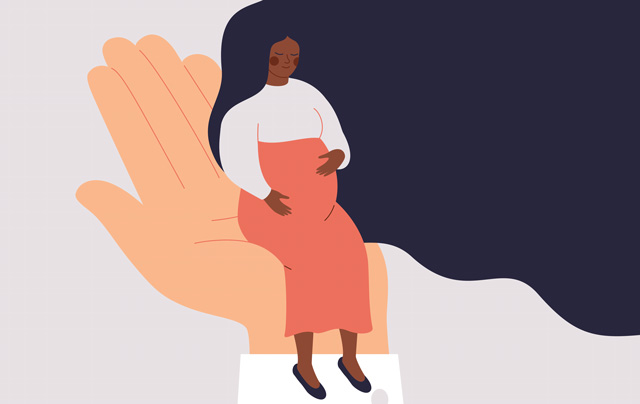
While there is no way of predicting that you will develop postpartum psychosis, these steps can be enormously helpful.
How to reduce the risk of postpartum psychosis
1. Ask for extra help
If any of the risk factors apply to you, don’t panic – it doesn’t mean that you’ll develop the illness. Forewarned is forearmed, though, so speak to your doctor or a mental health professional before you conceive, or as soon as you are pregnant. Stephen Buckley told us, “Talk to your doctor who can help you develop a plan for support. A perinatal psychiatrist will help you as well. They can discuss things like medication and talk about ways to reduce stress and triggers.”
2. If you have a mental health condition, tell your doctor
“Women with a previous history of mental illness related to bipolar and psychosis-related conditions ideally should let their psychiatrist or GP know that they want to get pregnant before starting to try to conceive, so a good discussion about medications, a plan to monitor their mental wellbeing, and having support can be put in place,” explains Dr Benito. If your pregnancy wasn’t planned, just let your doctor know when you discover you are pregnant.
3. Manage your stress
Although stress “is not a cause or risk factor of postpartum psychosis” says Dr Benito, stress isn’t good for anyone, so if you’re pregnant or have recently given birth, try to remove yourself from stressful situations as much as possible.
If you're in therapy, continue with this or ask your therapist to refer you to someone who specialises in perinatal mental health. Alternatively, speak to your midwife about finding a perinatal psychologist or pregnancy counsellor. A service such as Parenthood in Mind, for example, can help you from spiralling, as can medication.
4. Accept medical intervention
Because of the nature of postpartum psychosis, the majority of sufferers will need medical help. Don't try to manage this alone, or holistically.
“Medical intervention is necessary in most cases, particularly to pick up symptoms early on. Most cases require treatment with medication and sometimes in hospital due to the severity of the condition,” explains Dr Benito.
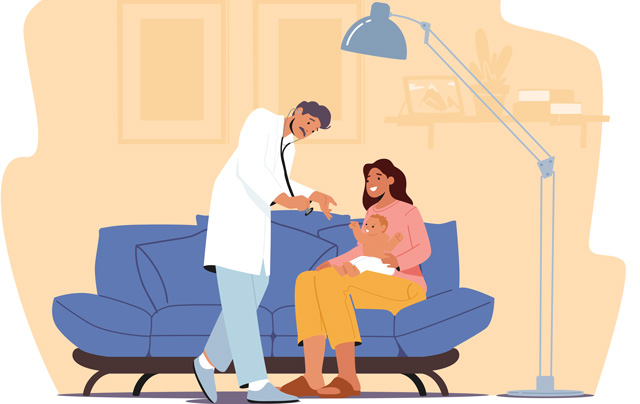
Seeking help when postpartum psychosis develops
Because of the extreme nature of postpartum psychosis, the best treatment is found in hospital, where mums are monitored until the worst is over. “The most appropriate treatment for anyone experiencing postpartum psychosis is admission to a Mother and Baby Unit (MBU), where women are able to recover without the added trauma of being separated from their baby,” explains Dr Heron. These units enable mum and baby to stay together whilst being supported by professionals and are the safest place for sufferers and their child. It's also key to a mother's recovery, as it's a fear of sufferers that their baby will be taken away. “MBUs provide specialist care, not just from a mental health point of view, but in terms of the physical care and facilities that women may need access to immediately following birth,” she adds.
Although it sounds scary medication can be very effective, too, even for a short time. “Antipsychotic and mood-stabilising medications may also be appropriate,” says Dr Heron.
Peer support
What people are, perhaps, less aware of, is how invaluable support from other mums in similar situations is. Charities such as Action on Postpartum Psychosis not only offer advice, they act as a go-between so sufferers can share their experiences. “Peer support is really important,” says Dr Heron. “Speaking to other women who have been through it and, importantly, recovered, really does make a difference. It gives people the hope they need to get through it.” The network also provides support for partners and families.
Dr Heron continues: “This is why APP works closely with MBUs around the country. We provide in-unit peer support, and our community peer support is delivered both in person (through café groups) and online (through online forums and digital meet-ups) around the UK.” What’s more, this support doesn’t end after recovery. “It’s on a lifetime basis. That’s during recovery, relapses, through parenting and navigating menopause symptoms,” says Dr Heron.
Advice for partners
Experiencing postpartum psychosis is hard on partners, too. As well as having to care of their sick partner, they may be taking care of a newborn, as well as other children. And they are probably working. Because of this, it’s important for them to realise that they are not alone. They, too, need taking care of. This sort of sudden illness can pull the rug from under a family’s feet so it's essential they ask for help.
“It's normal for mothers of postpartum psychosis and their partners to lack confidence with their parenting,” says Dr Nagore Benito, consultant psychiatrist of the London Psychiatry Clinic. "They need reassurance that this is the case for most new parents. Having those feelings does not make them bad parents or unable to look after their baby.”
Dr Benito advises sharing the experience with loved ones and to ask for practical help, such as shopping, cooking and babysitting. “It’s important to reduce stress levels and allow space for healing,” she advises – for both mum and her partner. Postnatal exercise and therapy can make a big difference. It’s very important that women and their partners do not think it's related to anything they have done, or that it's their fault, as this condition is highly related to purely biological factors that people do not have control of,” says Dr Benito.
Dr Jess Heron, CEO of Action on Postpartum Psychosis agrees: “While postpartum psychosis is a very serious illness, it’s very treatable. Our thriving peer support community is evidence of this. There is always hope – and there is a wonderful and supportive community waiting to welcome you.”
Find advice at:
Action on Postpartum Psychosis Mind mental health charity Royal College of Psychiatrists
What it is really like to live with postpartum psychosis
To understand what it’s really like to live with postpartum psychosis, we spoke to Zara, 31, who was diagnosed after the birth of her second child.
‘I started to experience symptoms around a week after the birth. Initially after becoming a mum for the second time I felt elated, so hyper and happy, like I could take on the world but then became unable to function. I was very severely depressed and started hallucinating, which involved smelling, hearing and seeing things that weren’t there.
‘I experienced postnatal depression after my first pregnancy, but this was different. At first my GP prescribed only antidepressants, putting it down to anxiety and hormones.
‘It was after a few months when I finally got to see a psychiatrist that he recognised that I had postpartum psychosis. He prescribed antidepressants and antipsychotics. It took three months for me to get properly diagnosed with postpartum psychosis, after the health visitor pushed for my appointment to be brought forward.
‘Unlike with postnatal depression, I had severe hallucinations, delusions and mood changes. I went from manic to a severe withdrawn depressed state that I’ve never experienced before. It also lasted much longer than postnatal depression.
‘The illness had a great impact on my family, they were at a loss of “what to do with me”. My partner’s mother thought I was being ridiculous and my partner was very worried and took on a lot.
‘My daughter was three at the time and I didn’t really engage with her like I used to, so that had an impact on her too. I couldn’t engage with my family and didn’t go outside for months. My partner tried to coax me out into the back garden and I went out for a second and came back in.
‘I managed to go to the park a few weeks after birth and spent a few minutes there and ran back home. I couldn’t even face going to baby clinic. With the depression I had after my daughter, I did new mum things like baby clinic, walks with her out in the pram. But with postpartum psychosis, I was afraid of everything for my son, didn’t trust anyone and totally isolated myself from everyone and everything.
‘My postpartum psychosis lasted longer than usual – around 18 months – and I don’t have many memories of my boy as a little baby, the illness robbed me of that. I did manage to feed, change him and hold him but it felt so alien.
‘I think if GPs had better training maybe and recognised what was happening, I would have been able to get seen quicker. I didn’t know about postpartum psychosis before having my children and neither did my family and as your the one in that state, you don’t really understand what’s going on, so more awareness is going to be a big help.’
Video of the Week

Debra Waters is an experienced online editor and parenting writer. She also has a strong background on health, wellbeing, beauty, and food. She currently writes for Goodto and Woman&Home, and print publications Woman, Woman’s Own, and Woman’s Weekly. Debra has written for What to Expect, Everyday Health, and Time Out. In addition, she has had articles published in The Telegraph and The Big Issue.
-
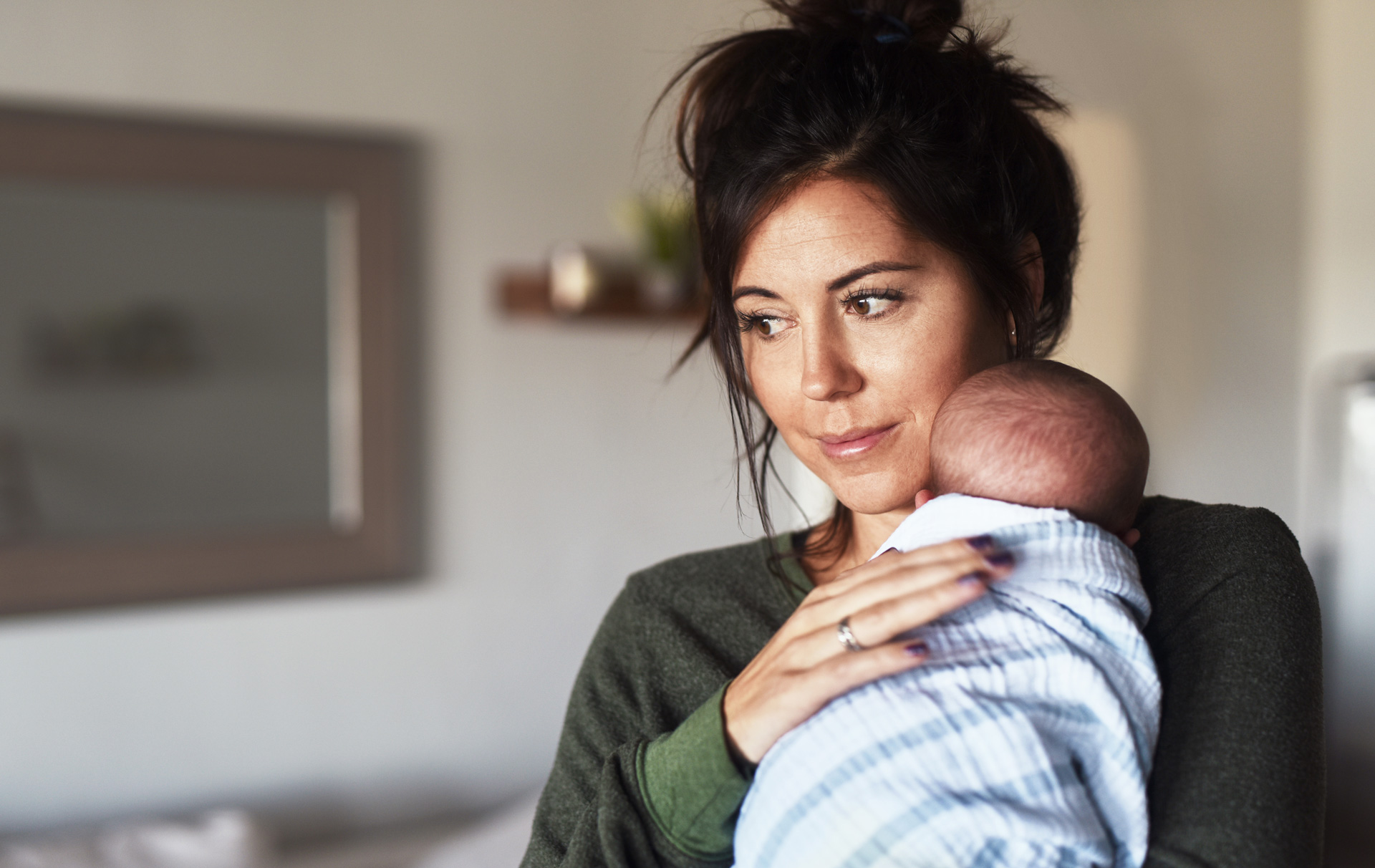 First period after a baby: What to expect from your first postpartum period
First period after a baby: What to expect from your first postpartum periodThe first period after a baby can be daunting. Here's what to expect – from how long a first postpartum period lasts to how to tell it's a period or lochia.
By Debra Waters Published
-
 Postnatal exercise: 5 ways to exercise after having a baby
Postnatal exercise: 5 ways to exercise after having a babyRegular post-pregnancy exercise can improve posture and strength, as well as increasing your energy and overall wellness
By Daniella Gray Last updated
-
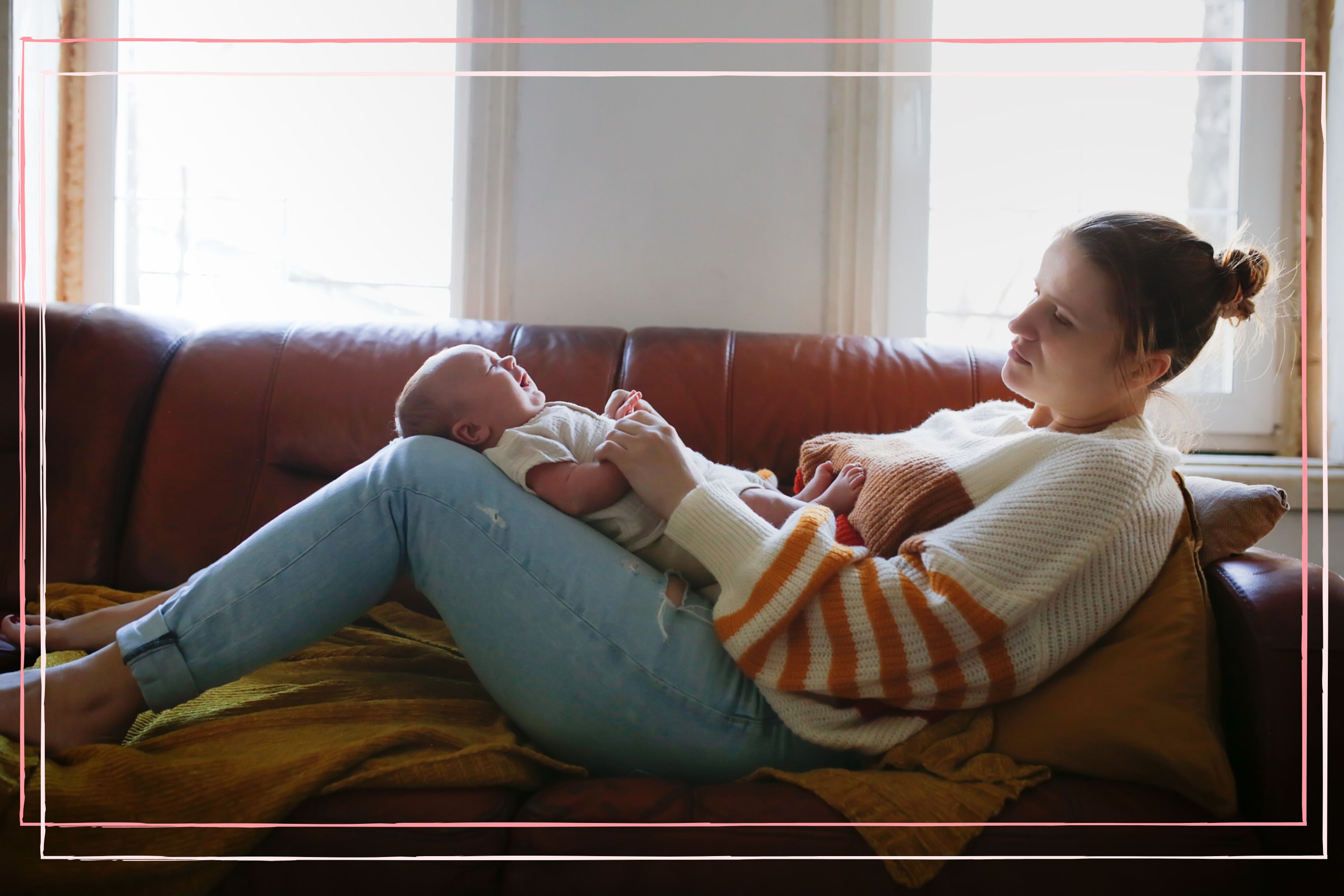 Bowel problems after pregnancy and childbirth are common but should not be ignored, here's why
Bowel problems after pregnancy and childbirth are common but should not be ignored, here's whyTwo doctors discuss the most common bowel problems after pregnancy and childbirth, sharing their advice on managing the issues and when to see a doctor
By Rachael Martin Last updated
-
 How to exercise your pelvic floor
How to exercise your pelvic floorYou've probably heard of pelvic floor exercises before - but are you doing them properly, or as often as you should be?
By GoodtoKnow Last updated